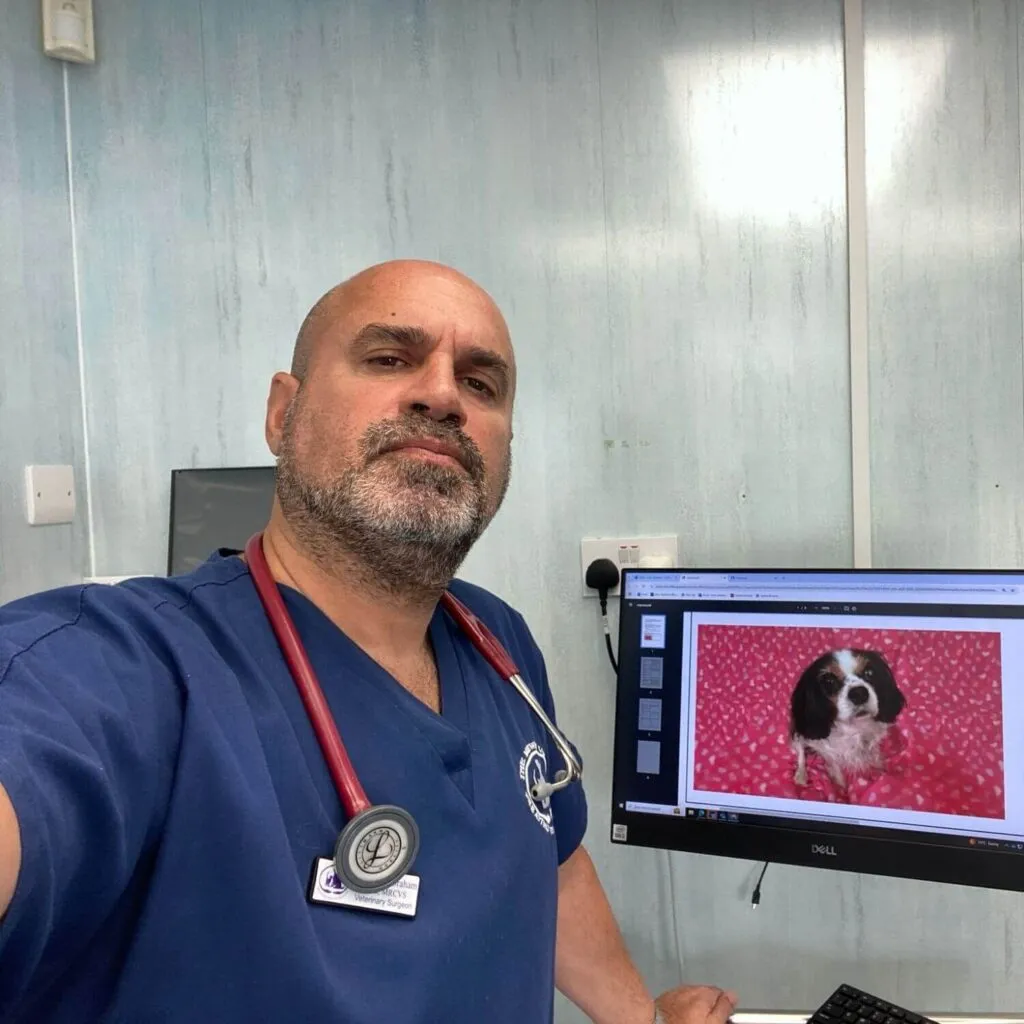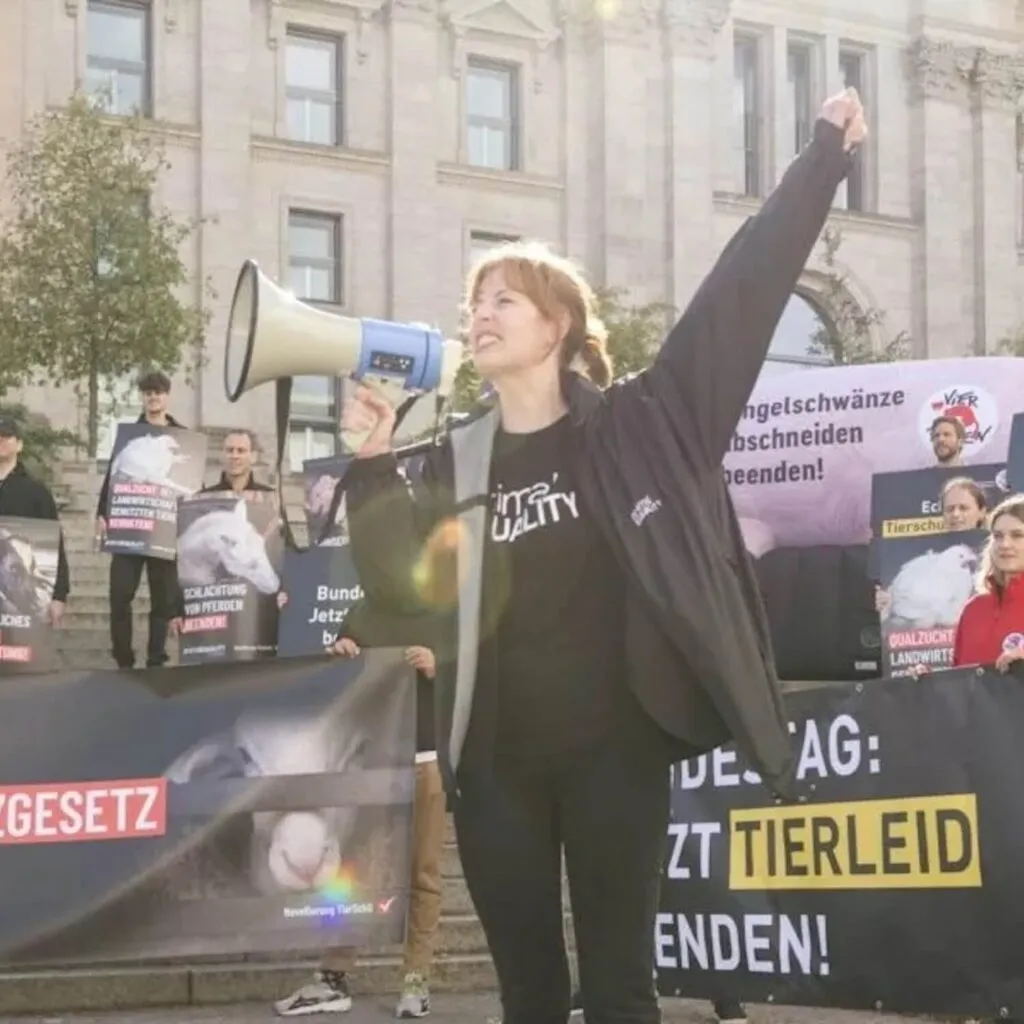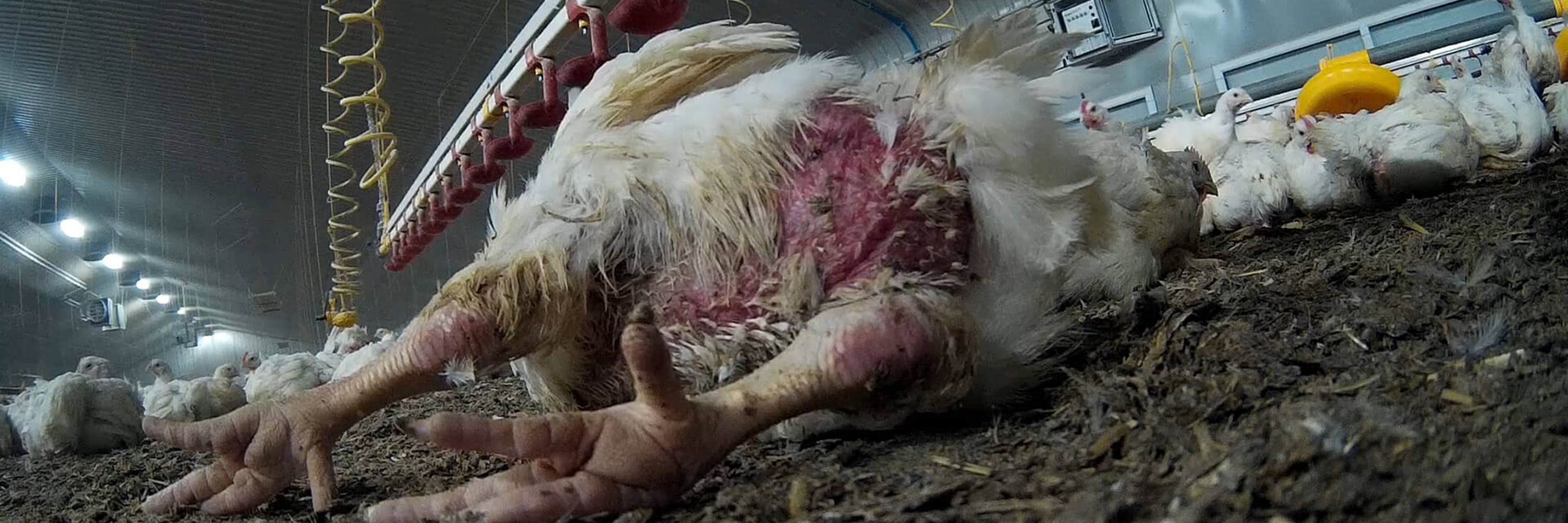
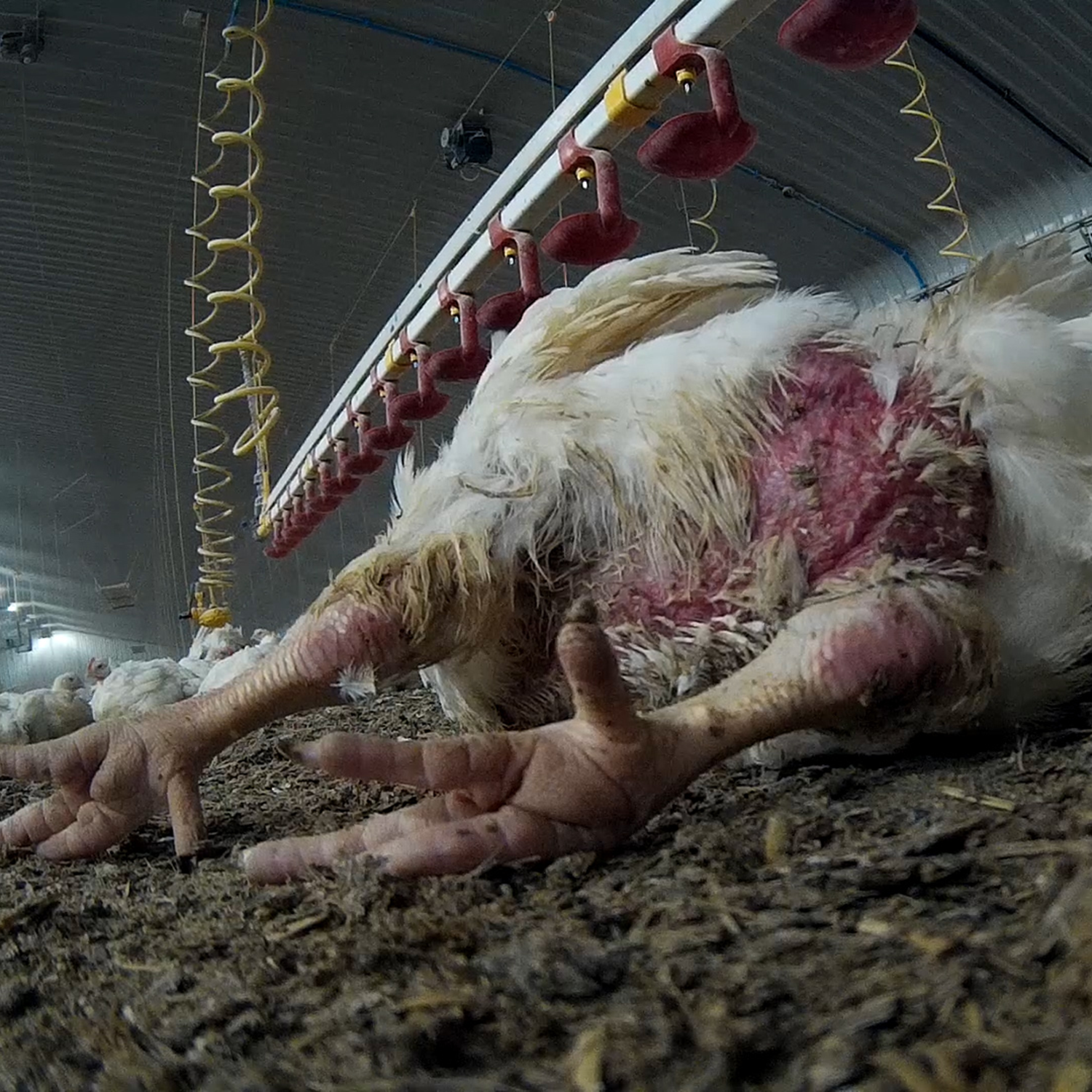
3 Things The Animal Agriculture Industry Doesn’t Want You To Know

The scale of factory farming in the UK is eye watering. There are almost 300,000 farms and slaughterhouses in the UK, which between them house millions of farmed animals at any given time.
Despite this vastness, the animals are nowhere to be seen. They are kept in factory-like farm buildings, with no windows to the outside world.
The only time we interact with these animals is when they are already dead, and their flesh is neatly packaged on the shelves of our supermarkets.
This suits the animal agriculture industry. If we cannot see what goes on behind the closed doors of factory farms and slaughterhouses, it is easy to sell us a rose-tinted picture of the life of animals forced to live and die in these facilities.
The industry tries to convince us that it has the animals’ best interests at heart. The meat, fish, dairy and egg industries often claim that they are the stewards of the UK’s land and animals, and call for less oversight and regulation.
But our investigations show that this industry is not one that can be trusted to self-regulate. Animal Equality has investigated nearly 50 facilities in the UK, finding prolonged animal suffering, deliberate abuse or neglect, and/or illegality taking place every single time.
Our undercover investigators have witnessed unspeakable cruelty at the hands of these industries, and have revealed the truths that they try to conceal from the public.
Read on to find out three things that the meat, fish, dairy and egg industries don’t want you to know.
1. Animals Don’t Need To Be Happy For Farms to Profit
Over recent decades we’ve seen a boom in factory farming. This type of farming treats animals like commodities that can be mass-produced, confining them to lives of misery.
With hundreds or thousands of animals crammed into a single shed, the industry can ‘afford’ for a proportion to be killed or die before they reach the slaughterhouse – perhaps because they are considered too small or unwell to make the industry money – without this denting their profits.
Globally, 99% of meat now comes from factory farms. The way this model operates is simple: maximise profits, by maximising the number of animals used. And in doing so, it maximises suffering in the process.
Our investigations have found evidence of this time and time again. We have exposed farms and slaughterhouses cutting corners on animal welfare routinely, just to save money and ensure their profit margins are as big as possible.
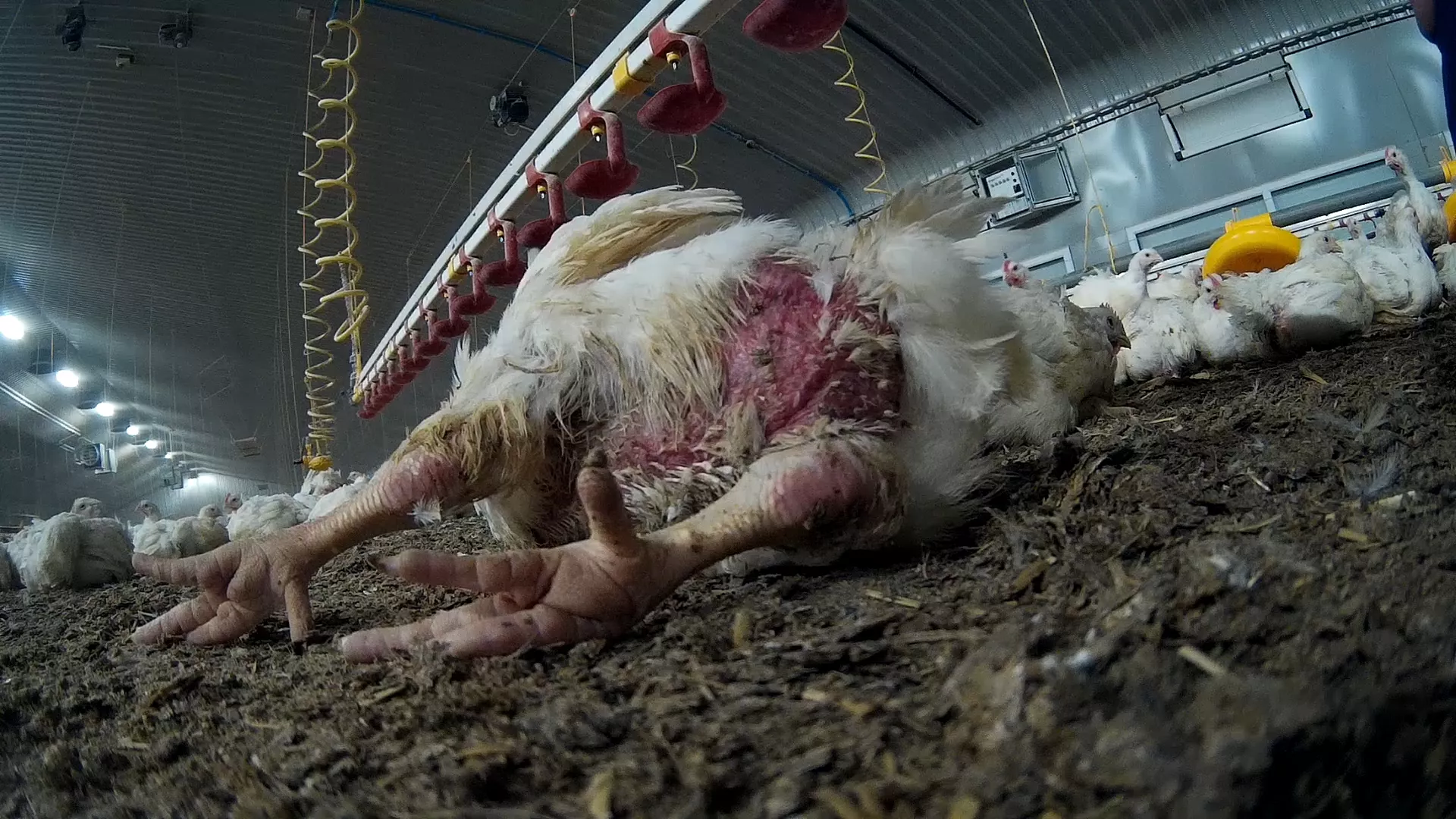
One example of this is the treatment of chickens bred for meat. Our investigations into facilities farming chickens have revealed shocking animal welfare violations, from extreme overcrowding that in some cases deprived chickens of access to water, to carcasses of dead chickens left to rot for days among the living birds.
These industries force as many animals as they can into a single space, so if ‘a few’ animals die along the way it won’t matter as they still see a huge financial turnover for their shareholders.
In one investigation, we recorded hundreds of chickens being killed each day as workers crushed the chicks’ necks in their hands, all because the chicks were considered to be too sick or to be growing too slowly.
We have also witnessed workers deliberately kicking and stepping on birds and breaking their necks, then throwing them in a pile with all the other dead and dying chickens.
Chickens do not fare any better in the egg industry. Our hidden camera footage shows facilities failing to complete mandatory daily welfare checks on the hens, as well as leaving dead birds in cages and walkways among the living. With so many packed into a cage, those that die from the harrowing conditions are hardly noticed.
Animal Equality’s investigators have observed chickens with severe feather loss and wounds in egg production facilities, as the cramped conditions cause the hens to become stressed.
If the lives of animals are worth so little to the meat and egg industries that they are willing to let millions of animals die unnecessarily before they even reach slaughter, profit and animal welfare clearly do not go hand in hand.
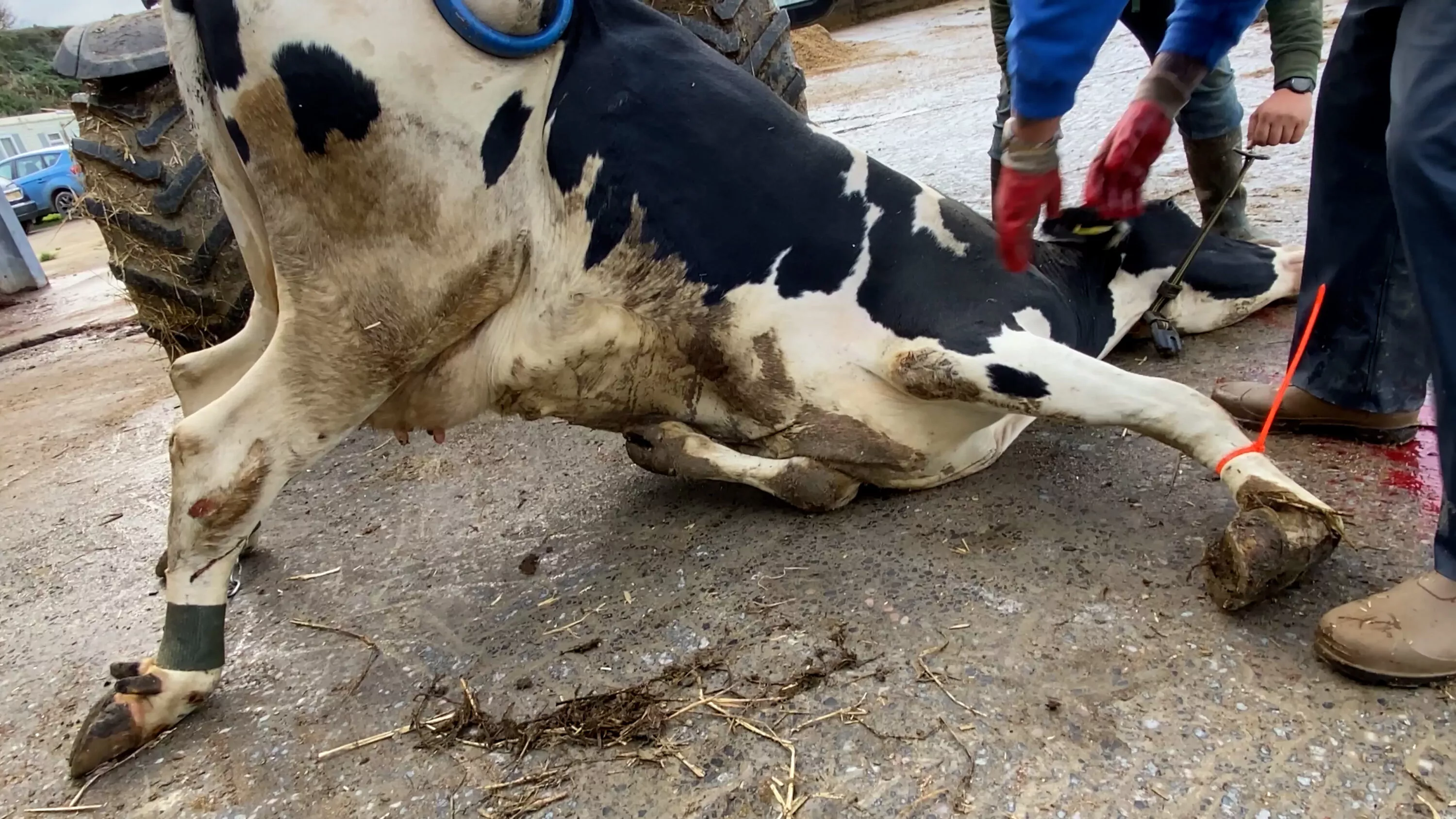
Profit is prioritised over animal welfare in the dairy industry too. Over the years cows have been selectively bred to produce unnaturally large quantities of milk, so much so that around one-third of cows in the UK are unable to walk or stand from the sheer weight of their udders, as well as the hoof pain they experience from spending their days on concrete floors.
And just because cows and calves are exploited by this industry to make money doesn’t mean that they do not face deliberate abuse, neglect and cruelty on some farms too.
We have filmed a wide range of abuse on dairy farms in the UK, including workers repeatedly kicking, slapping and punching cows and calves, as well as twisting cows’ tails and hitting them with sharp, metal shovels or metal gates.
On one farm, our investigators witnessed calves denied access to water for up to 29 hours on some of the hottest days of the year.
We have also filmed distressing scenes of workers pinning calves to the floor and standing on them, or violently throwing calves to the floor and yelling obscenities at them.
On one occasion, we saw farm managers knowingly leave a cow to suffer in severe, prolonged pain, after her unborn calf had died inside of her. A visiting veterinarian recommended prompt euthanasia for just £40, but the on-site manager opted to delay action, leaving her to die slowly.
This was just one cow in a herd of 650 on the farm at the time, so the loss of one individual will barely impact the farm’s profits. And, once cows see a reduction in their milk production, they are typically sent straight to slaughter: in the eyes of this industry they do not exist as individuals, but rather milk machines.
These shocking examples demonstrate that the happiness of animals is of little importance for the meat, dairy and egg industries, and profit will always come before animal welfare.
2. Farm Inspections Are Few and Far Between
If we can’t trust the animal agriculture industry to protect animals, who can we trust?
There are 180 taxpayer-funded authorities responsible for overseeing the enforcement of animal welfare laws in the UK. You would be forgiven for thinking that surely with this many eyes on farms and slaughterhouses, facilities are subjected to strict surveillance.
However, there are no rules on how often official inspections should be carried out to assess animal welfare on UK farms. Instead, inspections tend to be carried out based on risk.
This means that unless investigators have good reason to believe that animals might be suffering on a farm – such as previous history of animal abuse – there is little chance of a farm being inspected regularly.
Inspections may also be carried out following a complaint by a vet, member of the public, farm worker or whistleblower, or if an animal arrives at market or the slaughterhouse injured or in bad health. However, even when a complaint is made, it doesn’t guarantee that a farm will be inspected.
It is extremely difficult for the public to discover animal welfare issues in order to report them in the first place, as the meat industry keeps its animals hidden behind closed doors. This means that we are reliant on the bravery of whistleblowers and undercover investigators to find out if animals are suffering on farms.
This risk-based scheme cannot provide an accurate picture of animal welfare issues that take place on farms, and is highly unlikely to detect animal welfare issues when they arise. With farm inspections few and far between, the vast majority of farms in the UK are effectively left to their own devices.
Given that the meat, dairy and egg industries are primarily driven by profit, this leaves too much room for farms to cut corners and put the animals at greater risk of suffering.
3. The UK’s Animal Welfare Standards Are Not ‘World-Leading’
The UK is often considered to be a ‘world-leader’ on animal welfare standards. On paper, this may be the case, but in practice it’s a different story.
The current regulatory framework in the UK fails the animals it aims to protect. With only a small proportion of UK farms inspected every year, how many could be getting away with animal abuse without us even knowing about it?
Animal Equality’s investigations reveal a shocking picture of negligence and breaches of animal welfare laws in farms across the UK.
Our brave investigators have filmed harrowing scenes of workers hammering pigs to death or painfully cutting fishes’ gills open without even stunning them properly.
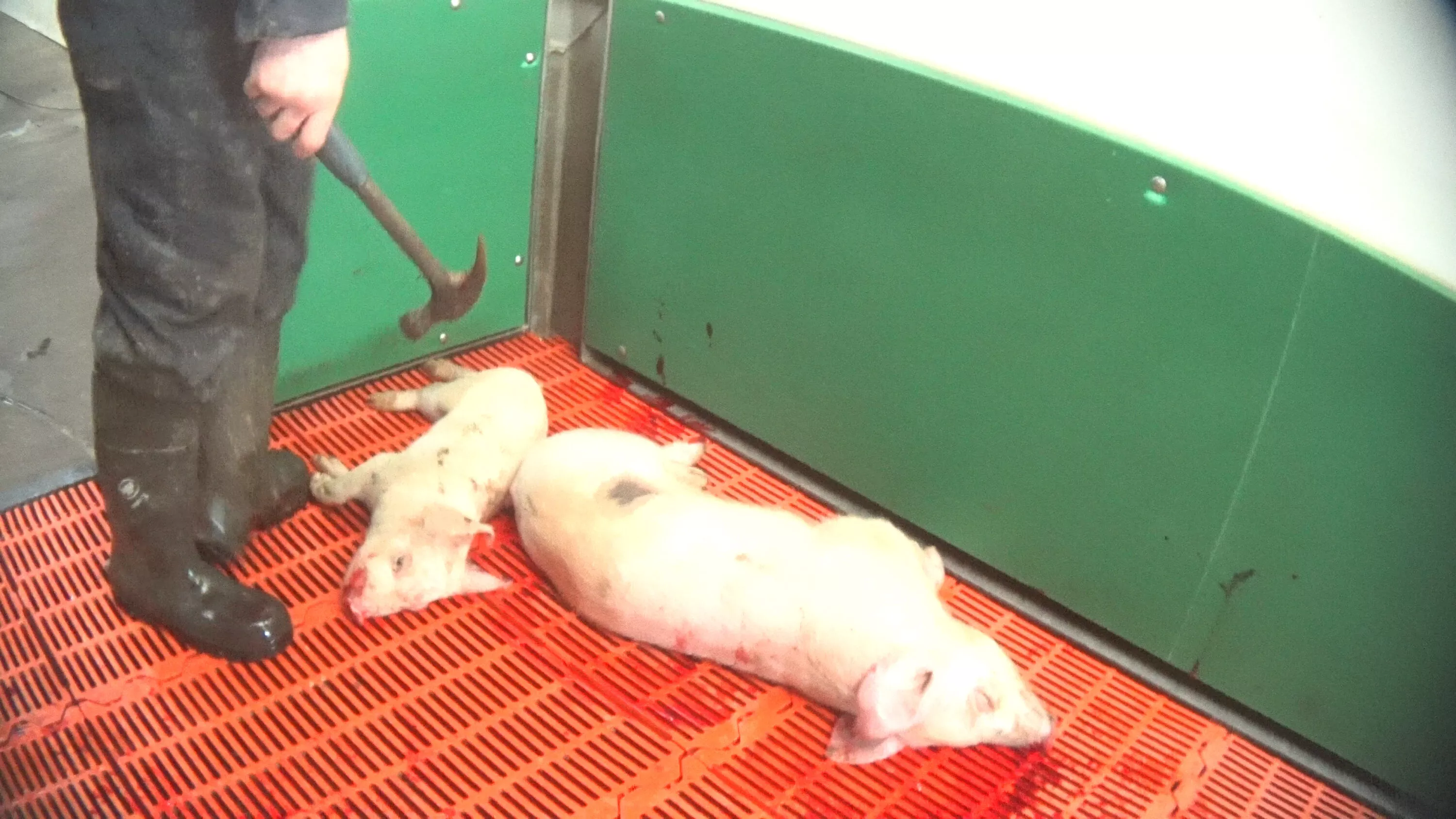
These are not isolated incidents – suffering on UK farms is routine. In one investigation, we recorded over 100 incidents of workers kicking pigs in just ten days.
We also frequently discover that farms are cutting piglets teeth and tails without pain relief consistently, in violation of welfare regulations.
The shocking and harrowing footage collected by our undercover investigators directly contradicts the idea that animals need to be happy for the meat, fish, dairy and egg industries to make a profit.
If farms and slaughterhouses continue to be allowed to effectively self-regulate, animals will be at even greater risk of suffering and abuse.
There is no point having ‘world-leading’ animal welfare laws if no one is enforcing them. That is why it is so crucial that regulations around inspections be tightened, so that animal abuse does not go unnoticed.
We are calling on the Government to hold animal abusers to account, and we need your help. Sign the petition to ensure that no animal has to suffer behind closed doors.
Recommended
